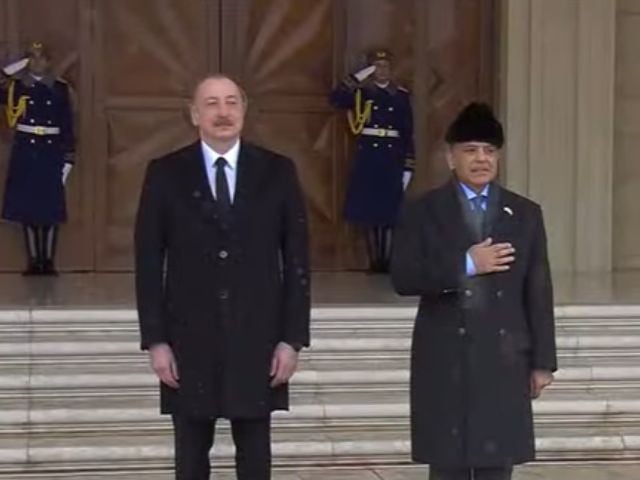Azerbaijan Invests $2 Billion in Pakistan, Boosting Ties
The $2 billion investment by Azerbaijan is a significant boost to Pakistan's economy, with the two countries aiming to increase trade turnover and cooperate in areas such as energy, defence, and climate change. The visit has marked a significant milestone in the strengthening of bilateral ties between Pakistan and Azerbaijan.

Prime Minister Shehbaz Sharif's two-day official visit to Azerbaijan has resulted in significant agreements, including a $2 billion investment in Pakistan's economy, aimed at strengthening bilateral ties between the two nations.
The visit, which is PM Shehbaz's second to Azerbaijan since assuming office in March 2024, has seen the signing of multiple memorandums of understanding (MoUs) and agreements to enhance economic and strategic partnerships. The agreements include collaboration in the Machike-Thallian-Tarujabba White Oil Pipeline Project and the sale and purchase of liquefied natural gas (LNG) cargoes.
The two countries have also agreed to promote cooperation in areas such as culture, tourism, urban development, education, science, and economy, with a specific MoU signed between Azerbaijan's city of Nakhchivan and Lahore. PM Shehbaz has praised the investment, stating it will have a "very positive impact" on the entire region and be a "game-changer" for Pakistan.
Azerbaijan's President Ilham Aliyev has expressed his country's commitment to increasing trade turnover with Pakistan, with plans to invest up to $2 billion in Pakistan's economy. The two leaders have also discussed the possibility of joint defence production facilities, with President Aliyev expressing satisfaction with the quality of defence equipment acquired from Pakistan.
The visit is expected to facilitate business-to-business collaboration and strengthen bilateral cooperation, with PM Shehbaz set to participate in delegation-level talks to discuss areas of mutual interest and cooperation, including strengthening bilateral relations, expanding trade and investment ties, and enhancing cooperation in the energy sector.